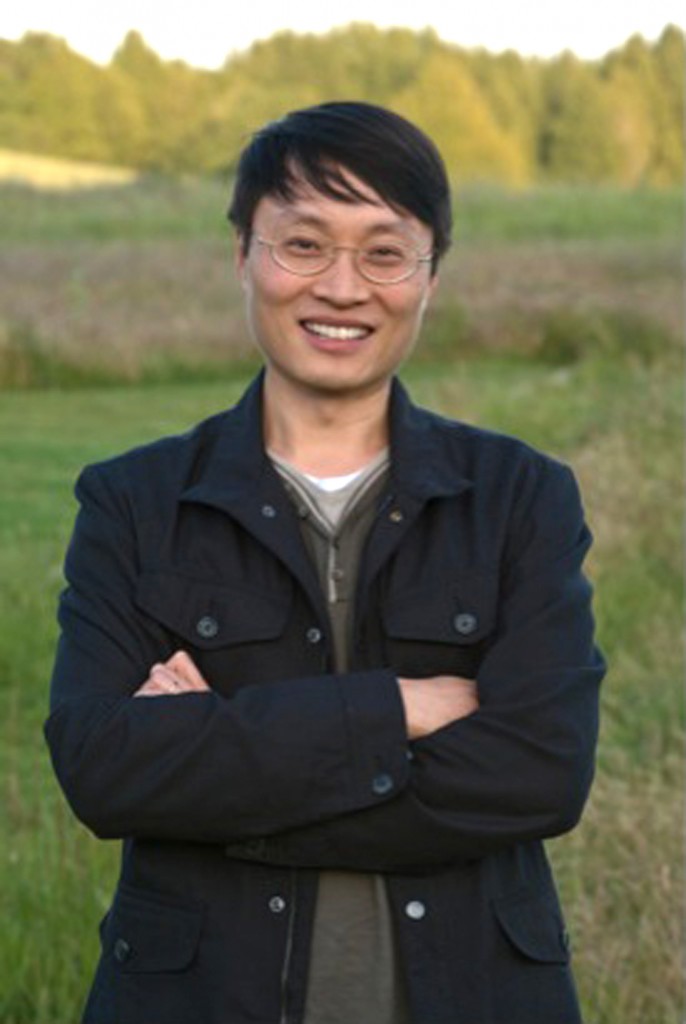By Stephen Brookes • The Washington Post • May 1, 2015
If there’s a documentary film crew following your every move, you’re probably doing something interesting. That’s certainly the case for the Shanghai Quartet, which — with cameras rolling — took the stage at the Freer Gallery of Art in the District on Thursday for a high-powered evening of Ravel, Beethoven and rising composer Lei Liang, whose beguiling works have become a centerpiece of the group’s concerts. Composer Lei LiangMaurice Ravel’s String Quartet in F is an icon of musical impressionism if there ever was one — full of glowing, light-as-air effects and nonstop elegance — and it’s usually played that way. But the Shanghai players kept all eight feet firmly on the ground throughout the work, probing beneath the shimmer for a complex, nuanced but, at times, rather cool reading. This ensemble exudes such seriousness of purpose that you tend to sit up a bit straighter in your chair when they play, and there’s rarely a feeling of heady, rapturous abandon. But precision and clear-eyed intelligence (and maybe a little astringency as well) can bring out the best in Ravel, and it was a superb reading.
Composer Lei LiangMaurice Ravel’s String Quartet in F is an icon of musical impressionism if there ever was one — full of glowing, light-as-air effects and nonstop elegance — and it’s usually played that way. But the Shanghai players kept all eight feet firmly on the ground throughout the work, probing beneath the shimmer for a complex, nuanced but, at times, rather cool reading. This ensemble exudes such seriousness of purpose that you tend to sit up a bit straighter in your chair when they play, and there’s rarely a feeling of heady, rapturous abandon. But precision and clear-eyed intelligence (and maybe a little astringency as well) can bring out the best in Ravel, and it was a superb reading.
Liang, a Chinese American composer in his early 40s, was short-listed for the Pulitzer Prize this year, and it’s easy to see why. Fresh, imaginative, steeped in tradition but thoroughly contemporary, his music has an immediate, nearly irresistible appeal. His “Verge Quartet” (written for the Shanghai Quartet) received its world premiere Thursday and, though only about 11 minutes long, had an almost epic feel. Steeped in traditional Mongolian music, and tied to the birth of the composer’s son, “Verge” seemed to shift effortlessly among musical worlds, its feathery atmospherics, percussive slaps, sliding glissandos and driving rhythms all integrated into a work of convincing unity and purpose.
The evening closed with Beethoven’s Quartet No. 2, Op. 59, one of the ravishing “Razumovsky” quartets. It was here that the Shanghai players seemed most in their element. Beethoven’s uncompromising seriousness of purpose echoed their own, and the heaven-storming drama, elegant refinement, controlled fury and profound serenity throughout the work all came to life in the group’s powerful performance.